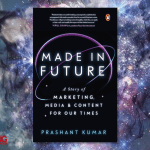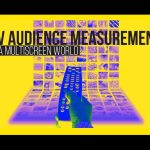By Paul J Loosley
Advertising film director Hugh Hudson grew up in the 1960’s, as did I, in a Britain where music was everywhere; bursting out of every window and doorway; from the Beatles to Mahler and from the blues to musique concrète. Hair was long and love was, if not free, heavily discounted. And no-one in the nation could possibly avoid music’s influence – thus the fact that Hudson used his exposure to distinctive music to drive his TVCs should come as no surprise.




Benson & Hedges 
British Airways 
Fiat Strada
So, listen up.
Hugh’s TVCs resonate to the sound of great music; the haunting choral arrangement of Léo Delibes’ Flower Song from the opera Lakmé for British Airways, the exceptional, electronically enhanced Largo al factotum from Rossini’s Il barbiere di Siviglia for the Fiat Strada and avante-garde soundtrack, Consequences for Benson and Hedges, from Godley and Creme (late of 10cc).
All tracks that iconaclised these brands. More so, none of these spots had any narration – just pictures and music working superbly in concert. (Indeed, British TVC directors could easily be credited with the invention of the music video).
So, when the time came for Hudson to move to feature films, he brought to the full-length movie the same great musical impact. Confirming music’s importance to tone and mood.
Film scholar Claudia Gorbman says, ‘within the general field of film studies, the study of film music might well represent the last bastion of film aesthetics’.
Hugh’s acute facility for music transferred most memorably to his film Chariots of Fire (1981). The story of competing runners in the 1924 Paris Olympics.
The film’s main theme, composed by Vangelis, an expatriate Greek musician, is possibly as memorable as the film itself. So distinctive was the melody it is now an almost clichéd accompaniment to any competitive athletic footage – slow motion images of athletes winning an event would seem incomplete without it.
‘Chariots’ won Oscars for best picture, best music and 2 others. Best of all it cost US$5.5m and earned US$53m.





Chariots of Fire (1981) 
In summary, there is a precise dynamic that Hudson clearly understood, illustrate by this quote, “Film scholars have begun to draw wider attention to the need not only to regard a film’s soundtrack as an indivisible composite element, but also to consider it at least equal to – and in some cases, arguably more important than – the moving images”.

A few of Hugh Hudson’s films you may have heard of 

Tell Hugh something he didn’t know!!
Series finale: ‘Light of our lives’.
The 1970s British ad director’s influence is incandescent. Today’s mainstream filmmakers certainly fill each frame with more and more detail. More and more women are reduced to stereotype or suffer fetishism and male domination. Scenes fire past the viewer in swifter and more rapid succession. And the role of music cannot be more highly valued.
… As mentioned earlier, class may have played a part in the rise of these Brit directors, Parker and Lyne being North Londoners and the Scott brothers being from the provinces. Vinod Mahindru and Jonathan Gem, in their writings say that in Britain, ‘culture was left to the commoners’…
As mentioned earlier, class may have played a part in the rise of these Brit directors, Parker and Lyne being North Londoners and the Scott brothers being from the provinces.
Vinod Mahindru and Jonathan Gem, in their writings say that in Britain, ‘culture was left to the commoners’. If one were to isolate the main ethos of these British admen turned filmmakers it might be precisely the commoner’s revolution; the rejection of the prevailing system and their discarding of convention.
Cultural rebellion would put these British directors at the forefront of postmodernism in cinema.
I quote, ‘Hollywood has undergone a transition from ‘Fordist’ mass production (the studio system) to the more ‘flexible’ forms of independent production’, and this independence was an ideology at the heart of the British ad-maker’s craft in the 1970s.
… Hollywood has undergone a transition from ‘Fordist’ mass production (the studio system) to the more ‘flexible’ forms…
Advertising writer Sam Delaney quotes an ill-informed reviewer who said, ‘Alan Parker comes from the world of advertising which gives us an easy stick to beat him with’. This critic completely failed to understand that the very thing that made the feature films of Parker and the others fresh, distinctive and successful was their auteurship, experimentation and schooling in the concentrated attention to each and every one of the 750 frames that constitutes the common thirty second TV commercial.
That critic should be beaten with the indelible debt modern cinema owes to Ridley, Adrian, Tony, Alan and Hugh.
‘Let there be light’.
*The Song of Rowdy Birds from the ‘Flower Duet’: Léo Delibes’ Lakmé
The 14th Malaysian Media Conference (MMC) is happening on 25 September at the Sime Darby Convention Center and is proud to announce its list of speakers compromising the most influential leaders in Malaysia’s media landscape. Have you registered to join MMC 2020?

MARKETING Magazine is not responsible for the content of external sites.
An afternoon of conversations we never had, with leaders most of you never met.
Discover what’s possible from those who made it possible. Plus a preview of The HAM Agency Rankings REPORT 2024.
Limited seats: [email protected]
BOOK SEATS NOW
























